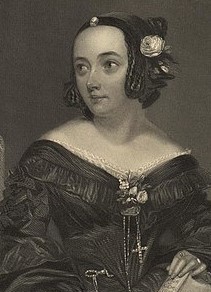Critic Susan Croft gave her 2001 encyclopedia of women playwrights working from the tenth through the twenty-first centuries a rather interesting title: …She Also Wrote Plays. This title alludes to the fact that women’s playwriting has received much less attention than women’s fiction and poetry writing has. Indeed, one often sees a variation of Croft’s title featured as a kind of afterthought at the end of potted biographies of women writers – even when the woman in question was quite a successful playwright. It’s as if, historically-speaking, the (mostly male) gatekeepers of the canon have been keen to keep women writers in a box marked “novelist” or “poet” or (more rarely) “playwright”, and have been reluctant to acknowledge that certain women have excelled – and found popularity – across multiple literary forms. By contrast, it is hard to imagine a potted biography of Oliver Goldsmith, Oscar Wilde, Brendan Behan, or Samuel Beckett which would describe them exclusively as dramatists. Yet, we regularly see women writers “pigeonholed” in this way.
When studying Irish literary history, it becomes clear that – as in other countries – there has been a tendency to overlook the dramatic output of multitalented women writers from Ireland: consider numerous figures from Mary Davys, Frances Sheridan, Elizabeth Griffith, and Maria Edgeworth in the “long” eighteenth-century right up to Edna O’Brien, Jennifer Johnston, Éilís Ní Dhuibhne, and Emma Donoghue in more recent times. Another female Irish writer who has fallen prey to this is Anna Maria Hall (née Fielding). Hall is often regarded solely as a fiction writer when, in fact, she was also one of the most successful Irish playwrights of the nineteenth century.
Born in Dublin but raised in Wexford, Hall moved with her widowed mother to England in 1815. Despite living primarily in England for the rest of her life, Anna Maria’s Irish identity remained very important to her and is central to her best-selling fiction and travel writing, as well as one of the three hit plays that she wrote for the London stage in the late 1830s: The Groves of Blarney. That play, which was an adaptation of one of her short stories, was a star vehicle for the celebrated Irish actor Tyrone Power, and it had an extended run at the Adelphi in 1838. The script is arguably weakened by its deference to the less positive tropes associated with “Oirish” melodramas of the nineteenth century, including a tendency to indulge in a degree of “Stage Irishness”. While Hall’s two other plays are both set in England, they still have Irish resonances/traces. Her Irish outsider status in England finds expression in St. Pierre, the Refugee – later published as The French Refugee – which was a smash hit at the St. James Theatre in 1836. And, as critic Ciara Moloney explains, her dramatic masterpiece, Mabel’s Curse (which was a popular success at the St. James in 1837) is “adapted from ‘Mabel O’Neill’s Curse’, a short story in Hall’s Sketches of Irish Character (second series, 1831)”, with Hall “mov[ing] the action from rural Ireland in the long shadow of the 1798 Rebellion to the Wolds of Kent after the English Civil War.”
Hall died in 1881 at the home she shared in Surrey with her husband, the Waterford-born journalist Samuel Carter Hall. Upon her death, Hall was praised for her literary accomplishments, as well as her many charitable endeavours and her support for women’s rights.
Plays
Find out more
For more on this playwright from an Irish Studies perspective, see Ciara Moloney’s book chapter on her in the essay collection The Golden Thread: Irish Women Playwrights, 1716-2016 – Volume One (1716-1992).

